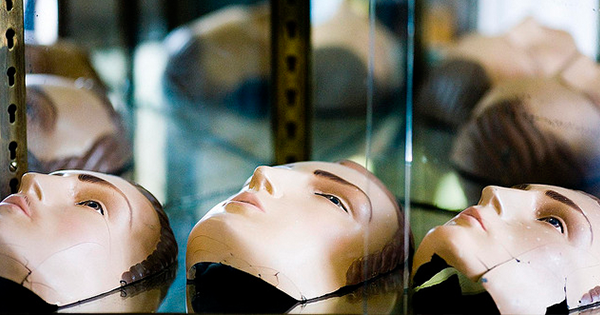
I never bought into the cliché of being “trapped in the wrong body.” Maybe it’s because I have always valued my body, sensing from early on that it was all I had. A smart friend of mine points out that saying you’re “a woman trapped in a man’s body” is a good way to give ignorant folks a handle on this—I mean, who would want to be imprisoned against their will? Still, I worry about massive self-hatred bound up in the “wrong body” belief, hatred not easily shed (as our 40 percent attempted suicide rate attests to), no matter what changes we see in the mirror.
I used to attend a monthly trans-feminine support group at the local LGBT center. The meeting attracts some of the most marginalized people in our society: the homeless, the unemployed, addicts, prostitutes, closeted crossdressers, teens kicked out of their houses, shell-shocked seniors who remember a time when crossdressers could be arrested for “fraud.” There are also some very accomplished people—teachers, artists, business professionals—but the space is dominated by aggressive, narcissistic, borderline, or delusional characters who say they have “women’s minds in men’s bodies” and think transitioning is the solution to all their problems.
When I decided to transition, it wasn’t my brain that pointed the way. My longing to be female has always come, as longings do, from the body. On mornings after nights spent cross-dressed, I’d lie in bed staring up at my nails, wishing I could keep them polished, while my brain reasoned how problematic that would be. What would my students say? What if family found out? What woman would ever be attracted to me? etc. When I began hormone replacement therapy, my body loved the estrogen and was glad to be free of testosterone, but my thinking mind had to be dragged along kicking and screaming.
What I see in that support group are people who’ve been trapped in the wrong families, wrong towns, wrong churches, schools, and medical systems. The older members seem especially locked up, from decades of accumulated trauma in a culture that couldn’t hold them. (There are indigenous cultures throughout the world that welcome, and even revere, trans people. Had we been born in Samoa, for example, where trans children are given important roles in families, we wouldn’t be calling our bodies wrong.) Tired of the party line, I finally spoke up: “No one is in the wrong body. We are trans people in trans bodies.”
Somatic alienation isn’t unique to us. Anorexics think they’re fat, Rachel Dolezal thinks she’s black, drug companies invent diseases and convince America it has “Irritable Bowel Syndrome” and “Attention Deficit Hyperactivity Disorder.” But I don’t think anyone’s gender identity can be compared to a delusion or a disease, and maybe that’s the point: to say you’re in the wrong body—ever—is to pathologize yourself.
“I consider this a birth defect,” said a trans woman I met while waiting to consult with a surgeon. We got to talking, and she revealed that she had fathered a trans daughter, now 20. “Does your daughter think she has a birth defect?” I asked. “No,” she said.

